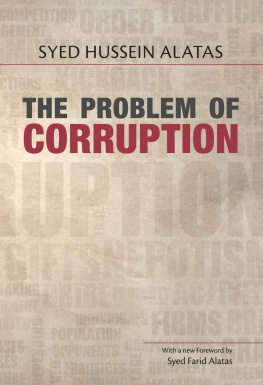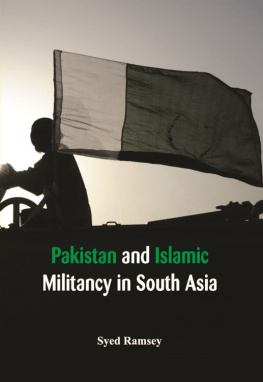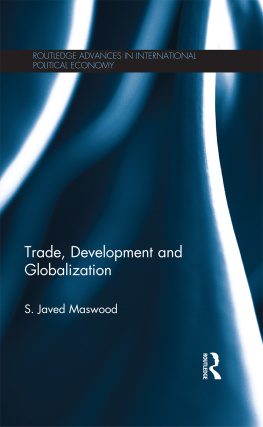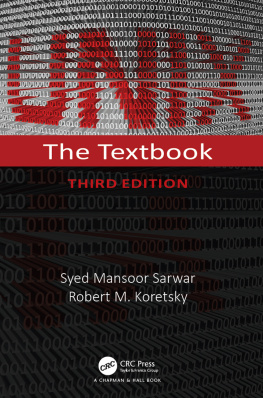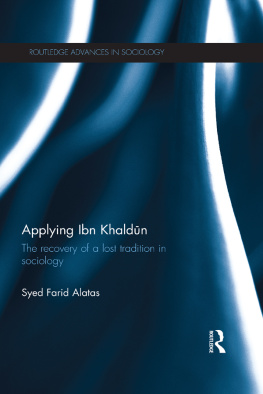Syed Hussein Alatas - The Problem of Corruption
Here you can read online Syed Hussein Alatas - The Problem of Corruption full text of the book (entire story) in english for free. Download pdf and epub, get meaning, cover and reviews about this ebook. year: 2015, publisher: The Other Press (TOP), genre: Politics. Description of the work, (preface) as well as reviews are available. Best literature library LitArk.com created for fans of good reading and offers a wide selection of genres:
Romance novel
Science fiction
Adventure
Detective
Science
History
Home and family
Prose
Art
Politics
Computer
Non-fiction
Religion
Business
Children
Humor
Choose a favorite category and find really read worthwhile books. Enjoy immersion in the world of imagination, feel the emotions of the characters or learn something new for yourself, make an fascinating discovery.
- Book:The Problem of Corruption
- Author:
- Publisher:The Other Press (TOP)
- Genre:
- Year:2015
- Rating:3 / 5
- Favourites:Add to favourites
- Your mark:
- 60
- 1
- 2
- 3
- 4
- 5
The Problem of Corruption: summary, description and annotation
We offer to read an annotation, description, summary or preface (depends on what the author of the book "The Problem of Corruption" wrote himself). If you haven't found the necessary information about the book — write in the comments, we will try to find it.
The Problem of Corruption — read online for free the complete book (whole text) full work
Below is the text of the book, divided by pages. System saving the place of the last page read, allows you to conveniently read the book "The Problem of Corruption" online for free, without having to search again every time where you left off. Put a bookmark, and you can go to the page where you finished reading at any time.
Font size:
Interval:
Bookmark:
The Problem of Corruption
by
Professor Syed Hussein Alatas
Syed Hussein Alatas 1986
First published 1968 under the title
The Sociology of Corruption
Donald Moore Press Ltd, Singapore
This revised edition 2015
The Other Press Sdn. Bhd.
607 Mutiara Majestic
Jalan Othman
46000 Petaling Jaya
Selangor, Malaysia
www.ibtbooks.com
The Other Press is affiliated with Islamic Book Trust.
Perpustakaan Negara MalaysiaCataloguing-in-Publication Data
Alatas, Syed Hussein, 1928-2007
The Problem of Corruption / Syed Hussein Alatas.
Includes index
Bibliography: p. 149
ISBN 978-983-9541-97-7
1. Political corruption--Asia. I. Title.
320.95
Printed by
Academe Art & Printing Services Sdn. Bhd.
No. 7, Jalan Rajawali 1A
Bandar Baru Puchong
Batu 8, Jalan Puchong
47100 Selangor
To Abu Dhar al-Ghifari (d. 653 AD), who valiantly fought against corruption and died lonely in exile in the desert of Rabadha. The fountain of his spirit continues to gush forth the call for justice, waiting for it to become a powerful river in a world scorched by injustice and oppression. Those who die for a cause awaken to life the dead among the living.
Man is free than he is commonly thought to be. He is greatly dependent upon the environment, but not to the degree of being subjugated to it. The greater part of our destiny lies in our handsprovided we understand this and do not let it go. Comprehending this, people however permit the environment to coerce and drag them on against their will. They renounce their self-sufficiency and, never relying on themselves, but on the environment alone, strengthen the ties linking them with it more and more. They expect that all the good and the evil of life will come from it, and depend least of all upon themselves. With such childish obedience, the fateful power of the external becomes irresistible. To engage in struggle with it seems insanity.
Alexander Herzen (1812-1870), Russian writer and revolutionary thinker. From the Other Shore, in Selected Philosophical Works.
Foreword to this Edition
Part One of this book was published more than forty years ago under the title of The Sociology of Corruption . It remains as relevant today as it was four decades ago. This is testimony to the sharp mind and passionate scholarship of the author, Syed Hussein Alatas, who took an interest in the phenomenon of corruption since his student days and tirelessly spoke and wrote about the problem throughout his life. On the other hand, the continuing relevance of this work is also cause for sadness. It is sad that the work is not obsolete, that still explains our problems today.
Corruption is a phenomenon that is found everywhere, in developed as well as underdeveloped nations. However, its nature, causes and functions differ from country to country. Following World War II and formal independence, many governments in developing countries began to involve themselves directly in business. This went beyond their regulatory and infrastructural roles. These governments became directly involved in the process of capital accumulation through the establishment of state-owned enterprises and financial institutions. In many cases, such as in Malaysia, ruling political parties became major owners of and investors in businesses and properties. These parties were able to acquire the means to buy, own and manage major concerns. Another aspect of the government s involvement in business is the ownership in the corporate sector by major political personalities by virtue of their position in or connections with government. This may or may not be due to nepotism. The group of capitalists that had evolved this way came to be known in Indonesia as client businessmen, but the term applies equally to other countries in the developing world.
Each of these aspects of the governments role in business has specific effects on development. State-ownership of enterprises and the role played by bureaucratic elites in these enterprises can be very important and beneficial to society, especially when these enterprises are monopolies that are deemed to be more efficient, cost-effective, and easier to control. But government involvement in business in terms of the role of political parties and client businessmen is potentially damaging to the economy because very often those who obtain rights, licenses, franchises, and the like are neither qualified nor competent in business. Patronage represents a major means by which such businessmen join the ranks of the economic elite. The disadvantage of this is that major corporations that are established through patronage or through political party connections are not up to standard as far as efficiency, technical know-how, and entrepreneurship are concerned. In this sense, the role of the government in development is negative. This is where corruption comes in. Politicians and civil servants often function to advance their own private interests in co-operation with capitalists in the private sector.
Syed Hussein Alatas defines corruption as the subordination of public interests to private aims involving a violation of the norms of duty and welfare, accompanied by secrecy, betrayal, deception and a callous disregard for any consequence suffered by the public. The three types of corruption commonly referred to are bribery or the acceptance of gifts by an official in return for granting special consideration to the interests of the donor, nepotism or the appointment of relatives, friends, and political associates to public offices regardless of the merits and consequences upon public, and extortion or the demand for gifts in return for the execution of public duties. In carrying out their public functions, state officials are in a position to advance their private interests, especially their material interests. Corruptors extend various forms of favours to private capitalists that encompass incentives, licensing, protectionism, funding from state banks, concessions, and joint-ventures. The relationship between the corrupt official and capitalist is one between patron and client. This is a special relation between a politically powerful patron and client who needs his/her protection due to the inadequacies of the formal economic institutions.
Corruption is found in all states but not all states are dominated by corruption. The type of state dominated by corruption can be referred to as a kleptocracy. The term kleptocracy was first used by the sociologist S. Andreski to describe the corrupt state in Africa and Latin America. The term is derived from the words klepto- (thief) and -cracy (rule). A kleptocracy is a state dominated by kleptocrats who engage in corruption as a major, if not principle, means of capital accumulation. The key kleptocrats are not mid-level and low-level civil servants who extort or accept bribes to make a living but high-level politicians and bureaucrats who engage in corrupt activities as means of accumulating capital. This state of affairs is so pervasive in many countries in Asia, Africa and Latin America that it warrants our recognition of the existence of the kleptocratic state. The kleptocratic state is one which serves mainly the private interests of its politicians and bureaucrats.
The kleptocratic state is one which is dominated by kleptocrats as elites and state functionaries. These elites and functionaries are involved in several of the distinct types of corruption as listed by Alatas in his 1990 book, Corruption: Its Nature, Causes and Functions . These are transactive, extortive, investive, autogenic and supportive corruption. Each type of corruption which involves a mutual arrangement between donor and recipient, would involve high-level government officials, and party, military and bureaucratic elites on the side of the state, and corporate and landowning elites on the side of the public. Investive corruption which refers to the offer of goods and services in anticipation of a future return of the favour is common practice among elites in the executive and bureaucracy of the state where they are in a position to offer, say import licenses to undeserving businessmen in return for the possibility of a position in the company after retirement from political office. Supportive corruption refers to corrupt acts which seek to protect and strengthen the various other types of corruption that exist. It is engaged in by various types of state elites to block or restrict capable and honest people from occupying strategic positions in government.
Next pageFont size:
Interval:
Bookmark:
Similar books «The Problem of Corruption»
Look at similar books to The Problem of Corruption. We have selected literature similar in name and meaning in the hope of providing readers with more options to find new, interesting, not yet read works.
Discussion, reviews of the book The Problem of Corruption and just readers' own opinions. Leave your comments, write what you think about the work, its meaning or the main characters. Specify what exactly you liked and what you didn't like, and why you think so.

